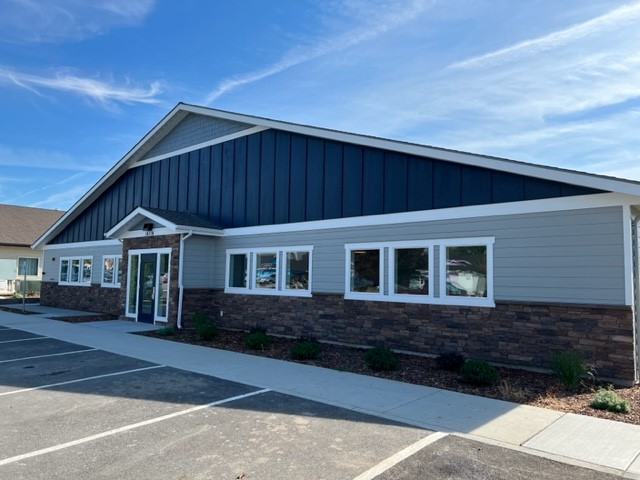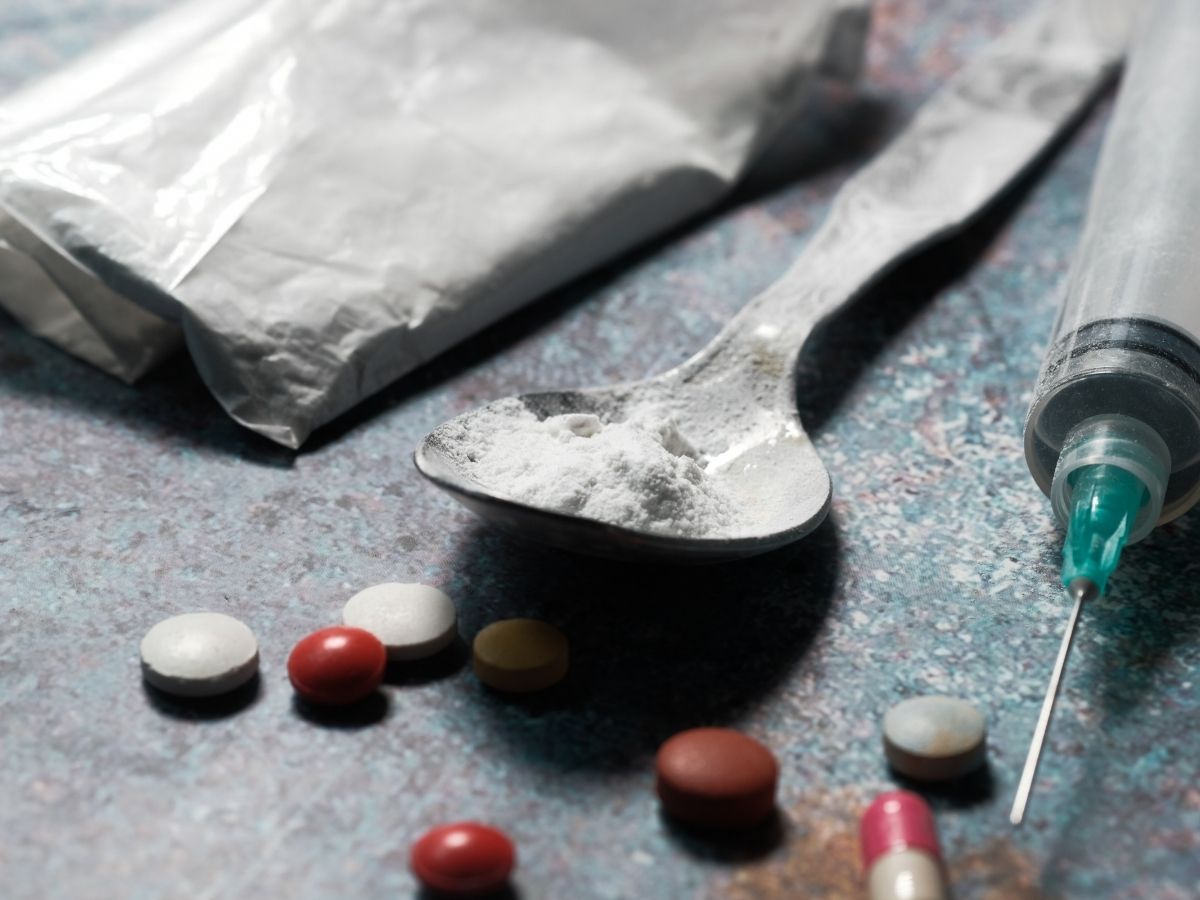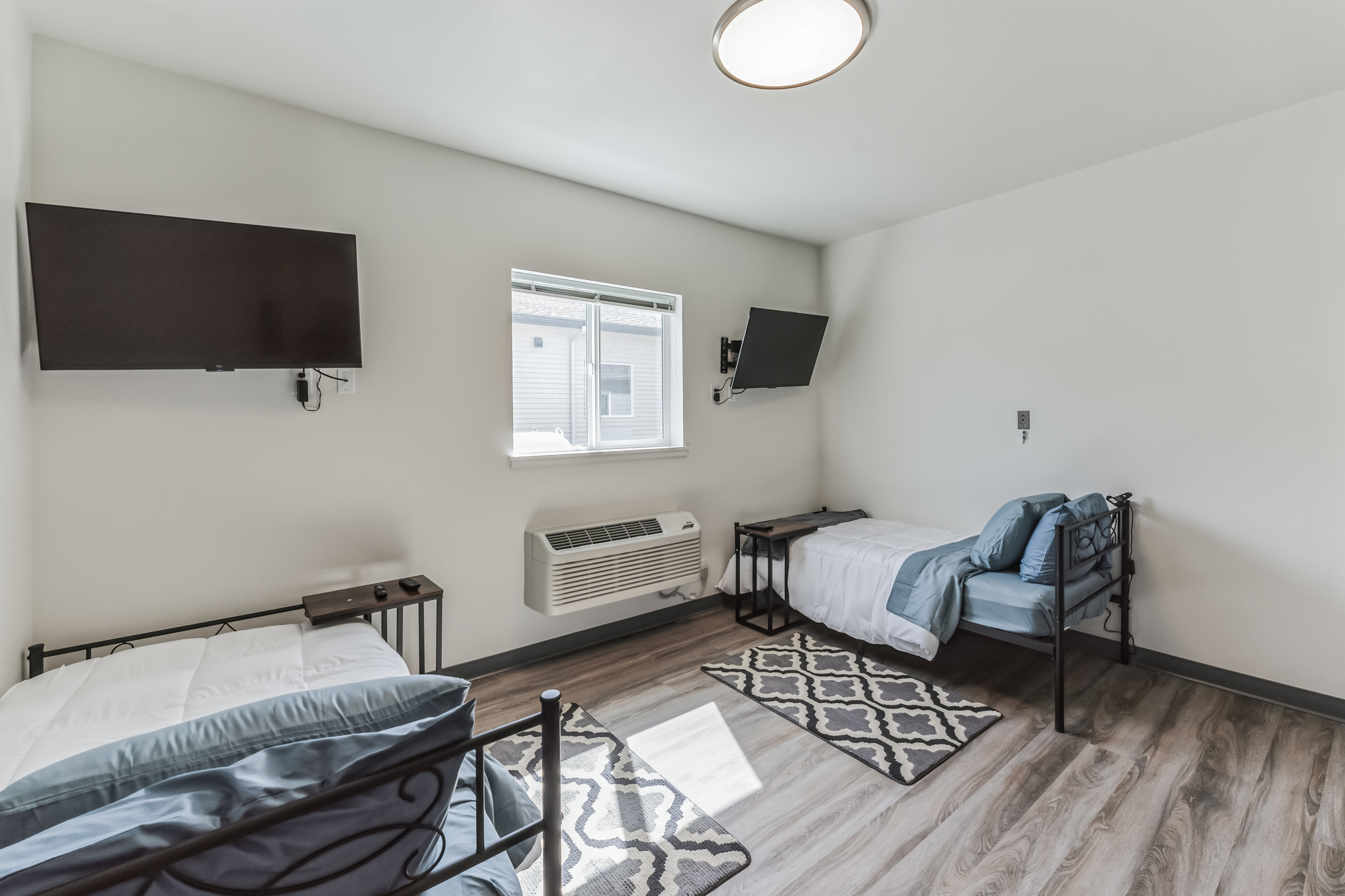By We Level Up WA | Author Giselle Leung, PharmD, BCGP | Editorial Policy | Research Policy
Depression isn’t feeling sad for a day or two. It’s a complex mental health condition that can evolve and shift over time. Understanding the stages of depression can help identify where you or a loved one might be in the journey and what kind of support might be most effective. At We Level Up Washington, we recognize that each person’s experience with depression is unique, requiring personalized care at every step.
Understanding Depression
Depression affected approximately 21 million adults in the United States, which is about 8.3% of the adult population, in 2021. It’s more than just feeling down; it’s a serious mental health condition that impacts how you think, feel, and handle daily activities.
The condition manifests differently for everyone. Some people experience persistent sadness, while others might feel empty or irritable. Many lose interest in activities they once enjoyed, struggle with sleep disturbances, or notice changes in appetite. Depression can also cause difficulty concentrating, feelings of worthlessness, and, in severe cases, thoughts of death or suicide.
What makes depression particularly challenging is how it can gradually intensify over time if left untreated. Someone might initially dismiss their symptoms as temporary stress or a rough patch, not realizing they’re experiencing the early stages of a more serious condition.
In Washington state, it is estimated that 23.5% of the adult population experienced a major depressive episode in 2020, slightly higher than the national average and representing hundreds of thousands of residents needing support.
At We Level Up Washington, we’ve created a healing environment where individuals can receive comprehensive care regardless of where they are in their depression journey.
Does Depression Have Stages? Exploring the Frameworks
When we talk about “stages” of depression, it’s important to note that depression doesn’t always follow a predictable path like some physical illnesses might. However, mental health professionals have developed several frameworks to help understand how depression typically progresses and manifests over time.
These models aren’t meant to categorize people. They are tools that help patients and clinicians recognize patterns, anticipate challenges, and develop appropriate treatment strategies. Think of them as maps that can help navigate the complex terrain of depression rather than strict guidelines that apply to everyone.
Two of the most widely recognized frameworks include:
- The 5-stage model, which parallels the stages of grief and focuses on emotional responses
- The 4-stage model, which emphasizes symptom severity and treatment response
At We Level Up Washington, we use these frameworks as starting points while recognizing that each person’s experience is unique.

End the Emotional Pain. Get Your Life Back.
Feeling Depressed, Anxious or Struggling with Mental Health Illness? Get Safe Comfortable Mental Health Dual Diagnosis High-Quality Therapy From Counselors That Care. Begin Your Recovery Now.
Hotline: (509) 348-4077

The 5-Stage Model of Depression
The 5-stage model of depression provides a framework for understanding the emotional journey many people experience. While not everyone will go through all stages or in this exact order, recognizing these patterns can help identify where you or a loved one might be.
Stage 1: Denial and Numbness
In this initial stage, many people experience emotional detachment or numbness. You might minimize your symptoms, thinking “I’m just tired” or “Everyone gets sad sometimes.” This denial often serves as a protective mechanism. However, it can delay seeking necessary help.
At We Level Up Washington, we often see clients who’ve spent months or even years in this stage before recognizing they need support. Our compassionate intake specialists are trained to help people acknowledge their symptoms without judgment.
Stage 2: Anger and Frustration
As denial fades, anger, irritability, and frustration often emerge. You might find yourself asking the question: “Why me?” or becoming easily agitated with loved ones. This anger might be directed at yourself, others, or the situation in general.
Our therapeutic approaches, including cognitive behavioral therapy (CBT) and dialectical behavior therapy (DBT), provide healthy outlets for processing these emotions and developing better coping mechanisms.
Stage 3: Bargaining
During the bargaining stage, people often try to regain a sense of control. You might make deals with yourself (“If I just work harder, I’ll feel better”) or try quick fixes that provide temporary relief but don’t address the underlying depression.
We Level Up Washington’s holistic approach helps clients move beyond temporary solutions to develop sustainable strategies for managing depression long-term.
Stage 4: Depression Intensifies
This stage represents the full manifestation of depressive symptoms. The persistent sadness, hopelessness, and fatigue become overwhelming and significantly impact daily functioning. Many people describe this as feeling as if they’re “in a deep hole” or “can’t see any light.”
Our intensive treatment programs provide the structured support needed during this critical stage, combining evidence-based therapies, medication management when appropriate, and compassionate care.
Stage 5: Acceptance and Recovery
The final stage involves accepting the reality of depression and actively engaging in recovery. This doesn’t mean giving up. It is quite the opposite: it means acknowledging depression as a treatable condition and committing to the healing process.
At We Level Up Washington, we celebrate this stage while recognizing recovery isn’t always linear. Our aftercare planning ensures clients have the tools and support needed for sustained wellness beyond treatment.
Comfortable Facilities & Amenities
High-Quality Mental Health Services & Behaviroal Health Substance Abuse Treatment
Rehab Centers TourRenowned Mental Health Centers. Serene Private Facilities. Inpatient Rehab Programs Vary.
Mental Health Helpline: (509) 348-4077Proven recovery success experience, backed by a Team w/ History of:
15+
Years of Unified Experience
100s
5-Star Reviews Across Our Centers
10K
Recovery Success Stories Across Our Network
- Low Patient to Therapist Ratio
- Comprehensive Dual-Diagnosis Treatment
- Complimentary Family & Alumni Programs
- Coaching, Recovery & Development Events
- Comfortable Onsite Medical Detox Center
The 4-Stage Model of Depression
While the 5-stage model focuses on emotional responses, the 4-stage approach examines depression through the lens of symptom severity and treatment needs. This framework is beneficial for clinical assessment and treatment planning.
Stage 1: Mild Depression
In this early stage, symptoms are present but may not significantly impair daily functioning. You might experience occasional sadness, reduced energy, or mild sleep disturbances. These symptoms often come and go, making them easy to dismiss.
At We Level Up Washington, we emphasize that early intervention at this stage can prevent progression to more severe depression. Our outpatient services provide flexible support that fits into your routine.
Stage 2: Moderate Depression
As depression progresses to the moderate stage, symptoms become more persistent and begin noticeably affecting work, relationships, and daily activities. Difficulty concentrating and feelings of worthlessness or guilt may emerge.
Our partial hospitalization programs (PHP) and intensive outpatient programs (IOP) offer structured treatment while allowing clients to maintain some of their regular responsibilities.
Stage 3: Severe Depression
Severe depression involves intense symptoms that significantly impair functioning. Profound hopelessness, inability to experience pleasure (anhedonia), and physical symptoms like significant weight changes or extreme fatigue are common. Thoughts of death or suicide may emerge.
We Level Up Washington’s residential treatment provides the comprehensive, around-the-clock care needed during this critical stage. Our serene Spokane facility offers a safe environment where healing becomes the primary focus.

Stage 4: Treatment-Resistant Depression
Some individuals experience depression that doesn’t respond adequately to standard treatments. This requires specialized approaches and often a combination of therapeutic modalities.
Our clinical team has extensive experience with treatment-resistant depression, utilizing advanced options like transcranial magnetic stimulation (TMS), specialized medication combinations, and innovative therapeutic approaches to help clients find relief even when other treatments haven’t been successful.
World-class, Accredited, 5-Star Reviewed, Effective Mental Health Dual Diagnosis Programs. Complete Integrated Inpatient Rehab with Free Post Discharge Therapy Planning.
Hotline: (509) 348-4077End the Emotional Pain Rollercoaster. Gain Stability & Happiness Through Recovery Treatment. Start Mental Health Counseling Today. Get Free No-obligation Guidance by Behaviroal Health Specialists Who Understand Mental Health Recovery.
Symptoms Across the Stages of Depression
Depression symptoms evolve as the condition progresses, and recognizing these changes can help identify when additional support might be needed.
Early Stage Symptoms
In the beginning, symptoms tend to be subtle and easily attributed to other causes. Many people at this stage continue functioning in their daily lives while dismissing these signs as temporary stress or normal mood fluctuations.
Middle Stage Symptoms
As depression progresses, symptoms become more pronounced and more difficult to ignore. Persistent sadness or emptiness may lead to noticeable withdrawal from social activities, as individuals lose interest in things they once enjoyed.
Sleep disturbances, whether insomnia or excessive sleeping, can further impact overall well-being, including changes in appetite and weight. Increased difficulty concentrating or making decisions can make daily tasks overwhelming, while feelings of worthlessness or inappropriate guilt contribute to emotional distress.
At this point, symptoms typically interfere with work, relationships, and daily responsibilities.
Advanced Stage Symptoms
In later stages, depression symptoms can become severe and debilitating. Profound hopelessness and despair can lead to a complete loss of interest or pleasure in all activities, making even basic tasks seem meaningless. This emotional burden often results in severe fatigue and lack of energy, along with cognitive difficulties that impair memory and processing.
Psychomotor changes, such as restlessness or slowed movements, worsen normal functioning. When depression reaches this level, it can cause significant impairment in work, relationships, and self-care.
Persistent thoughts of death or suicide are particularly concerning and require immediate support and intervention.
Comprehensive Depression Treatment at We Level Up Washington
At We Level Up Washington, we believe effective depression treatment must address the whole person, not just their symptoms. Our comprehensive approach combines evidence-based therapies, medication management when appropriate, lifestyle support, and ongoing care planning.
Psychotherapy Approaches
Our therapeutic interventions are tailored to each client’s needs and may include:
- Cognitive Behavioral Therapy (CBT): Helps identify and change negative thought patterns that contribute to depression
- Dialectical Behavior Therapy (DBT): Teaches mindfulness, distress tolerance, and emotional regulation skills
- Interpersonal Therapy: Focuses on improving relationships and communication patterns
- Group Therapy: Provides peer support and shared learning experiences
- Trauma-Focused Therapies: Addresses underlying trauma that may contribute to depression

Medication Management
For many individuals, especially those in moderate to severe stages of depression, medication can be a vital component of treatment. Our psychiatric team provides:
- Comprehensive evaluation to determine if medication would be beneficial
- Careful selection of appropriate medications based on symptom profile
- Ongoing monitoring for effectiveness and side effects
- Education about how medications work and what to expect
- Adjustment of dosages or medications as needed
We emphasize that medication works best when combined with therapy and lifestyle changes, creating a synergistic effect that addresses depression from multiple angles.
Dual Diagnosis Treatment
Approximately 20.4 million adults in the U.S. have co-occurring mental illness and substance use disorders, according to SAMHSA’s 2023 National Survey on Drug Use and Health (NSDUH). Our specialized dual diagnosis program addresses both conditions simultaneously, recognizing that treating one without the other often leads to relapse.
Lifestyle Support and Holistic Approaches
Research consistently shows that lifestyle factors significantly impact depression recovery. Our holistic support includes:
- Nutritional guidance from registered dietitians
- Physical activity programs tailored to individual abilities
- Sleep hygiene education and support
- Stress reduction techniques, including mindfulness and meditation
- Creative therapies such as art and music therapy
Get Help. Get Better. Get Your Life Back.
Searching for Accredited Dual Diagnosis Mental Health Centers Near You?
Even if therapy failed previously, or are in the middle of a difficult crisis, we stand ready to support you. Our trusted behavioral health specialists will not give up on you. When you feel ready or just want someone to speak to about counseling alternatives to change your life call us. Even if we cannot assist you, we will lead you to wherever you can get support. There is no obligation. Call our hotline today.
FREE 24/7 Dual Diagnosis Mental Health Services HotlineWhy Choose We Level Up Washington for Depression Care?
When seeking treatment for depression, finding the right provider can make all the difference in your recovery journey. We Level Up Washington stands apart through our:
Clinical Excellence
Our treatment center is fully accredited and staffed by licensed professionals with specialized training in depression treatment. Our multidisciplinary team includes psychiatrists, psychologists, licensed therapists, and nursing staff who work collaboratively to provide comprehensive care.
Personalized Approach
We recognize that no two people experience depression the same way. From your first assessment, we develop an individualized treatment plan that addresses your specific symptoms, challenges, and goals. As you progress through our program, we will adjust your treatment plan according to your needs.
Insurance and Accessibility
We work with most major insurance providers and offer free benefits verification to help you understand your coverage options. Our admissions team is available to answer questions about insurance, treatment options, and the admissions process.
Taking the First Step Toward Recovery
Reaching out for help is often the most challenging part of the depression recovery journey, but it’s also the most important.
At We Level Up Washington, we’re ready to meet you wherever you are in your journey. Our compassionate team provides confidential assessments and clear guidance on treatment options. Whether you’re seeking help for yourself or a loved one, we’re here to support you every step of the way.
Don’t wait for depression to worsen. Call our 24/7 helpline at 509-348-4077 to speak with a caring admissions counselor today. Your path to healing can begin with that single call.
Watch How to Improve Mental Health?
Frequently Asked Questions
Where in Spokane, Washington, can you find depression treatment?
We Level Up Washington offers comprehensive depression treatment at our Spokane facility. Our center provides multiple levels of care, including residential treatment, partial hospitalization programs, and intensive outpatient services. Contact us at 509-348-4077 for a confidential assessment.
Where in Seattle, Washington, can you find depression treatment?
While our primary facility is in Spokane, We Level Up Washington serves clients from Seattle through our comprehensive treatment programs. Additionally, we can connect Seattle residents with local resources and outpatient options when appropriate. Call 509-348-4077 to discuss how we can support your needs.
Where in Coeur d’Alene, Idaho, can you find depression treatment?
We Level Up Washington’s Spokane facility is conveniently located just 30 minutes from Coeur d’Alene, making us an accessible option for Idaho residents seeking depression treatment. We regularly serve clients from Coeur d’Alene and surrounding areas, providing comprehensive care including residential treatment and outpatient programs. Our admissions team can verify insurance benefits for Idaho residents and coordinate seamless admission. Contact us at 509-348-4077 to learn more.
Experience Transformative Recovery at the We Level Up Treatment Center.
See our authentic success stories. Get inspired.
Get the help you deserve.



Start a New Life
Begin with a free call to a behavioral health treatment advisor. Learn more about our dual-diagnosis programs. The We Level Up treatment center network delivers recovery programs that vary by each treatment facility. Call to learn more.
- Personalized Care
- Caring Accountable Staff
- World-class Amenities
- Licensed & Accredited
- Renowned w/ 5-Star Reviews




